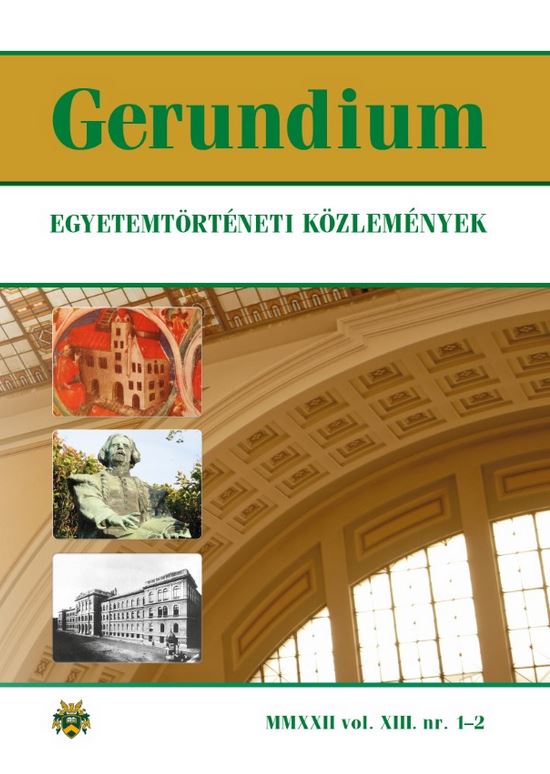A PHILOLOGICAL BEHAVIOUR IN EARLY FRENCH PRE-UNIVERSITIES
Szerző
Megtekintés
Kulcsszavak
Licenc
Copyright (c) 2022 Gerundium

This work is licensed under a Creative Commons Attribution 4.0 International License.
Hogyan hivatkozzuk
Absztrakt
A tanulmány azt vizsgálja, hogyan kezdtek el foglalkozni a Loire-menti kora francia előegyetemeken római írók, például Horatius, Ovidius, Virgilus munkáival, abból a célból, hogy a szövegeket római szövegként mindenféle „rejtett értelem” nélkül magyarázzák. Jelen tanulmány Orléans-i Vilmos (1200 körül) Ovidius filológiai kommentárjaival foglalkozik, amely a filológiai gondolkodás kiváló példáját adja. Az ilyen klasszikus „pogány” szövegekhez való visszanyúlás heves indulatokat váltott ki és a klasszikus szövegek allegorikus magyarázatához, majd pedig gyakran a szövegek iskolai tananyagból való eltüntetéséhez vezetett. A korai humanisták tiltakoztak ezen helyzet ellen.


 https://doi.org/10.29116/gerundium/2022/1-2/4
https://doi.org/10.29116/gerundium/2022/1-2/4





